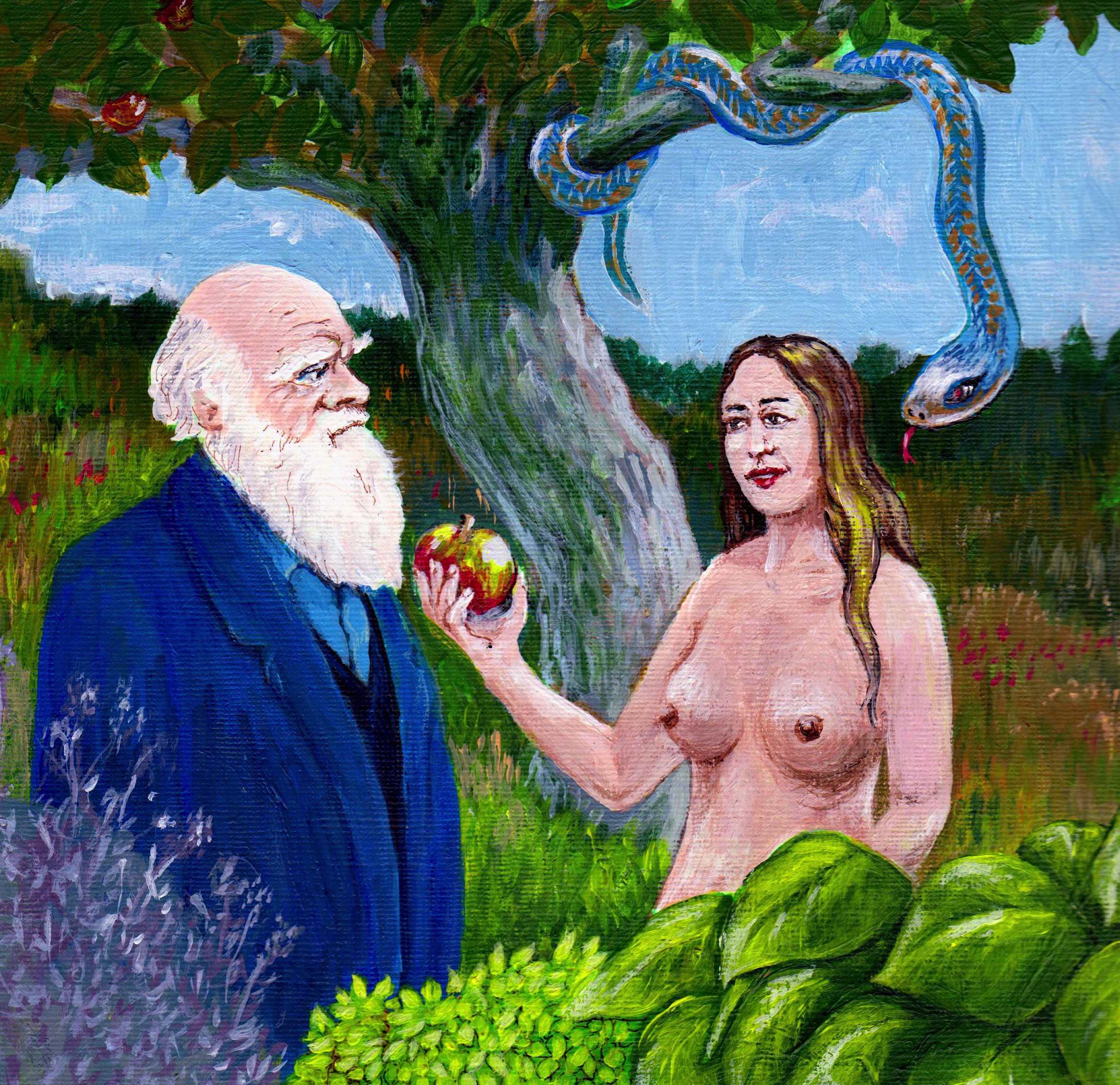sonic | The various theories explaining the evolutionary and
biological origin of religion do not show comprehensively how religion
is adaptive and increases individual fitness. The Split hypothesis
proposes the co-evolution of religion and consciousness—that intrinsic religion is a compensating mechanism for higher-order consciousness.
It unifies all ritual and religious behaviors under one umbrella and
explains how all these behaviors are adaptive and increase evolutionary
success. Empirical science is the basis for this inquiry.
Contemporary scientists such as Daniel Wegner, Antonio
Damasio, V.S. Ramachandran, Joseph LeDoux, and John Bargh attest that
consciousness, the rational mind, is not solely, or even mostly, the
seat of volition as many believe. Humans remain tethered to their
biological heritage, which behaviorally is the emotional system as Jaak
Panksepp helps reinforce. Consciousness gives humans distinct advantages
(culture), but there is no absolute truth accessible solely to
consciousness. It has limited inherent intelligence. Consciousness also
evolved to be far noisier and distracting than is useful and carries a
distinct and significant downside. The limbic system’s reward and
pleasure centers are the primary arbiters of behavior and serve
homeostasis, the physiological activities that ensure survival and
reproductive success. Cognitive biases are the unconscious drivers of
“conscious” decision-making and, themselves, are derived from innate
emotional predispositions and conditioning. Religion serves to rein in
overbearing consciousness and promotes instinctual knowledge. Religion
quiets consciousness to let emotions and homeostasis run the show, hence
religion is adaptive.
All religious behaviors including music, art, dance,
mythology, and prayer evolved to elicit emotions and suppress or quiet
consciousness to various degrees. Contemporary brain and behavioral
research show these ritual activities stimulate the brain’s reward
systems, and people benefit from them. This would not have happened had
they not been evolutionarily adaptive. These ritual behaviors are
utilized by psychologists and psychotherapists to help people integrate
emotions, which strongly supports their adaptive functions.
Read the introduction that lays out The Split hypothesis of religion in more detail.



5 comments:
Accurate scientific theories, applied outside their range of validity, become horseshit. If there is any sense at all underlying the idiocy and boredom unleashed by the creation/evolution debate, maybe that's part of it.
Walker Percy talked a lot about this kind of thing, trying to come at it without falling for one weakness of the piece cited here -- the "scientism" fallacy where we fall into thinking anything that seems explicable via science is somehow already subject to a scientific explanation. One piece that's online,
http://www.udel.edu/anthro/ackerman/loss_creature.pdf
lol, of course you know that long before there was any of this livestock management via collective security club, there was yoga. Have you ever examined the scope and depth of yoga and marveled that something so profound could be so ancient among these humans?
Reason I ask, one of the five fundamental forms of yoga, in fact, the one perhaps most popularly familiar to westerners is bhakti-yoga, or the yoga of religiosity. What an amazing thing that there could be an ancient science of religion and religiosity whose innermost teachings and workings remain mostly unknown to the west.
Much of what passes for "scientistic" explanation of religion is rooted in casual acquaintance with raja/jnana/bhakti/karma yoga. I ain't know what to tell you about lithe young horndogs and doggettes sweating and posing in hot rooms nowadays. That's.not.hatha yoga...., at all.
I am totally ignorant about yoga.
I am curious of the author's ideas about emotion and consciousness.
He says in a summary statement: "Religion stimulates our emotions and suppresses consciousness; therefore religion is adaptive."
I am not so sure religion stimulates emotion or not, but I was thinking about the idea that stimulating emotions suppresses consciousness. Take for instance sports, for me on the basketball court, a little bit of controlled anger seemed to always up my play. We all see emotion being a good size component as how a team performs. Perhaps emotionally wanting something so bad will suppress the consciousness of your body feeling pain or tired, but at the same time there needs to be awareness as to what your opponent is doing and what your other team members are doing.
I just don't know if they are separate, it seems many times the emotion may rise out of being conscious of something you hadn't thought of before. I can't believe that the emotion from the stream of consciousness ends up suppressing the consciousness.
Post a Comment